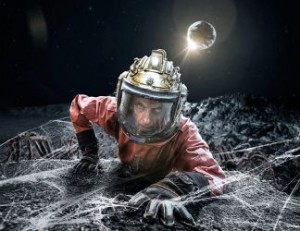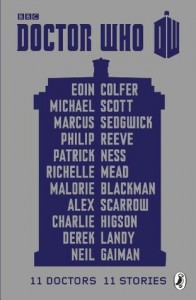 To my mind, ‘Kill The Moon’ turned out to be another good episode. If I could compare it to a past Doctor – and it feels like the series currently demands that of you – it would probably be the Fourth Doctor, dear old Tom Baker. When the Doctor disappears into the crack in the Moon seeking out the source of the spiders, that reminded me of Tom for some reason. Not quite sure why. I’m happy to go with the gut instinct on this one.
To my mind, ‘Kill The Moon’ turned out to be another good episode. If I could compare it to a past Doctor – and it feels like the series currently demands that of you – it would probably be the Fourth Doctor, dear old Tom Baker. When the Doctor disappears into the crack in the Moon seeking out the source of the spiders, that reminded me of Tom for some reason. Not quite sure why. I’m happy to go with the gut instinct on this one.
So, in ‘Kill The Moon’ we have a humanity-changing situation at hand in a point of temporal flux of which The Doctor has no notion of the outcome. What happens now hasn’t happened yet – despite the fact that what has come after apparently already has. Clara has seen the Moon in the future, so how could it possibly be destroyed in the past?
Flux.
Anyway – we have had these temporal nexus points before. Going back to Tom, ‘Genesis of the Daleks‘ was a nexus in some measure. The Time Lords sent him to destroy the Daleks – and the point of their creation by Davros represented a malleable event open to change.
We seem to have two phenomenon that have cropped up many times like this – the nexus, where events could be changed despite the certainty they can’t be open to alteration; and, the forgotten past, where something happens – like a Tyrannosaurus Rex or a gigantic Cyberman – and people somehow paper over the incident like it never did happen. Who remembers it – um… no one, because it would hurt to give it credance, and it was probably just the fog or a minor outbreak of hysteria.
Here, The Doctor takes the stance he has worked against for so very long. The Time Lords claimed they held to values about non-intervention, and only the Doctor and a few others – like the Celestial Intervention Agency – worked against the grain. Here, The Doctor steps back and states he can have nothing to do with the decision. The only people able to make this decision has to be those affected by the outcome, the people of Earth.

